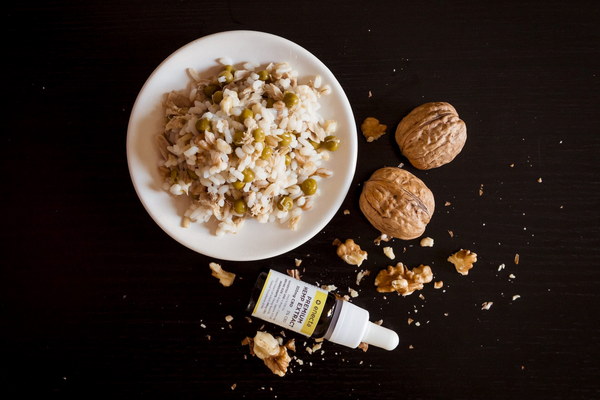Polycystic Ovary Syndrome A Comprehensive Guide to Body Care and Management
Polycystic Ovary Syndrome (PCOS) is a common endocrine disorder affecting women of reproductive age. It is characterized by irregular menstrual cycles, high levels of androgens, and multiple cysts on the ovaries. While there is no cure for PCOS, managing the symptoms and maintaining a healthy lifestyle can significantly improve the quality of life for women with this condition. In this article, we will explore various aspects of body care and management for women with PCOS.
1. Balanced Diet
A well-balanced diet is crucial for managing PCOS symptoms. Here are some dietary tips for women with PCOS:
a. Reduce carbohydrate intake: High levels of insulin in the blood can exacerbate PCOS symptoms. Limiting the intake of refined carbohydrates, such as white bread, pasta, and sugary foods, can help maintain stable blood sugar levels.
b. Increase fiber intake: High-fiber foods, such as fruits, vegetables, whole grains, and legumes, can improve insulin sensitivity and help manage PCOS symptoms.
c. Consume healthy fats: Good fats, such as those found in avocados, nuts, seeds, and olive oil, can help reduce inflammation and improve overall health.
d. Eat plenty of vegetables: Vegetables are rich in vitamins, minerals, and antioxidants, which can help manage PCOS symptoms and improve fertility.
2. Regular Exercise
Physical activity is essential for women with PCOS, as it can help:
a. Reduce insulin resistance: Regular exercise can help lower insulin levels, which is beneficial for women with PCOS.
b. Maintain a healthy weight: Weight management is crucial for managing PCOS symptoms, as obesity can exacerbate the condition.
c. Improve fertility: Regular exercise can increase the chances of conception in women with PCOS.
3. Stress Management
Stress can affect hormone levels and exacerbate PCOS symptoms. Here are some stress management techniques:
a. Practice mindfulness and meditation: These practices can help reduce stress and improve overall well-being.
b. Get enough sleep: Poor sleep can affect hormone levels and exacerbate PCOS symptoms. Aim for 7-9 hours of quality sleep per night.
c. Engage in hobbies: Activities you enjoy can help reduce stress and improve your mental health.

4. Regular Healthcare Check-ups
Regular healthcare check-ups are essential for monitoring your PCOS and managing symptoms. Here are some key points to discuss with your healthcare provider:
a. Monitor blood sugar levels: High blood sugar levels can exacerbate PCOS symptoms and increase the risk of developing type 2 diabetes.
b. Discuss medication options: Some women with PCOS may benefit from medication to regulate menstrual cycles and reduce androgen levels.
c. Consider fertility treatments: Women with PCOS who are trying to conceive may need fertility treatments, such as clomiphene citrate or in vitro fertilization (IVF).
5. Support Networks
Connecting with others who have PCOS can provide emotional support and practical advice. Consider joining a support group or online community to connect with others who understand what you're going through.
In conclusion, managing PCOS involves a combination of dietary changes, regular exercise, stress management, and healthcare check-ups. By adopting a healthy lifestyle, women with PCOS can improve their symptoms and overall well-being. Remember to work closely with your healthcare provider to create a personalized management plan tailored to your needs.









